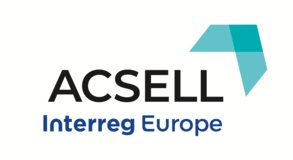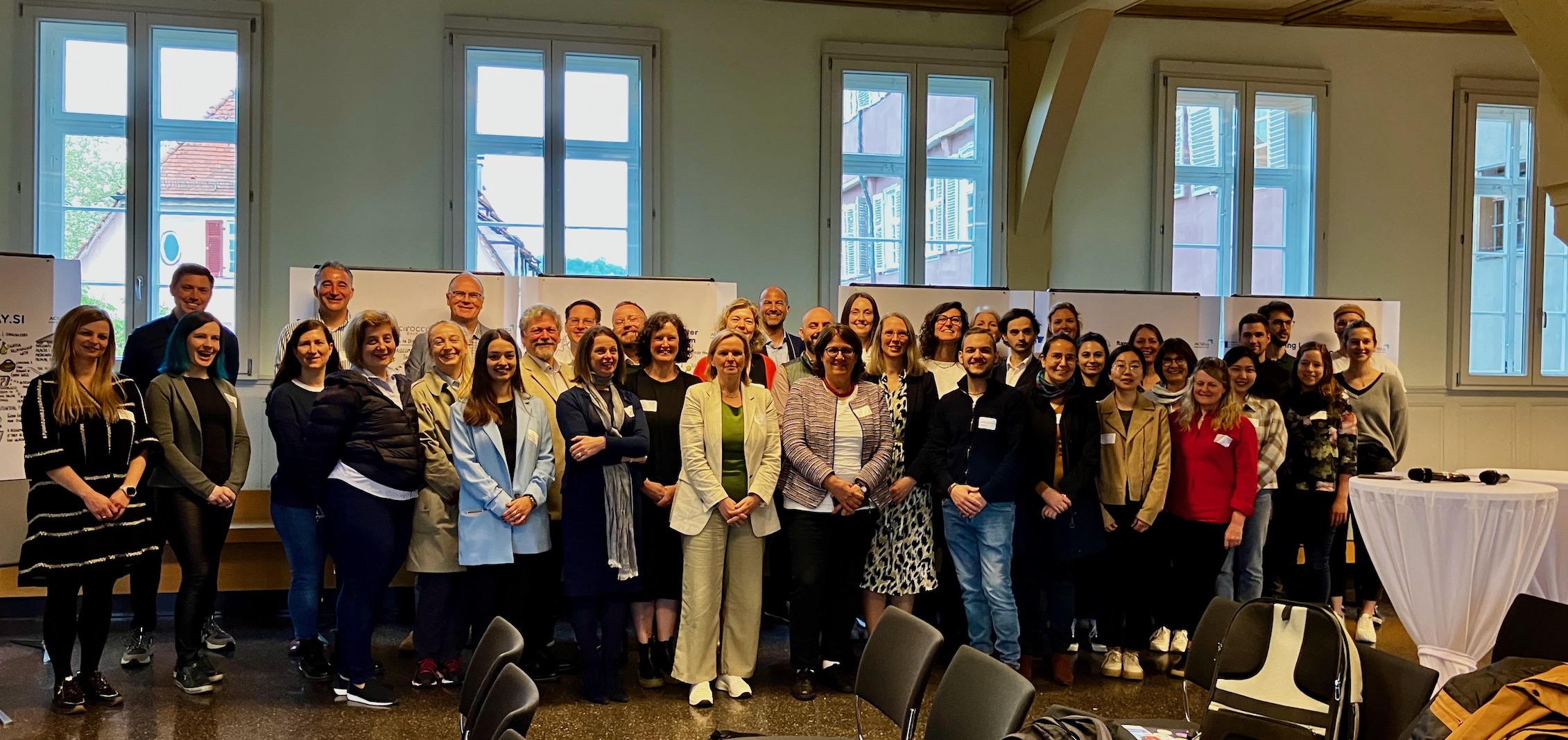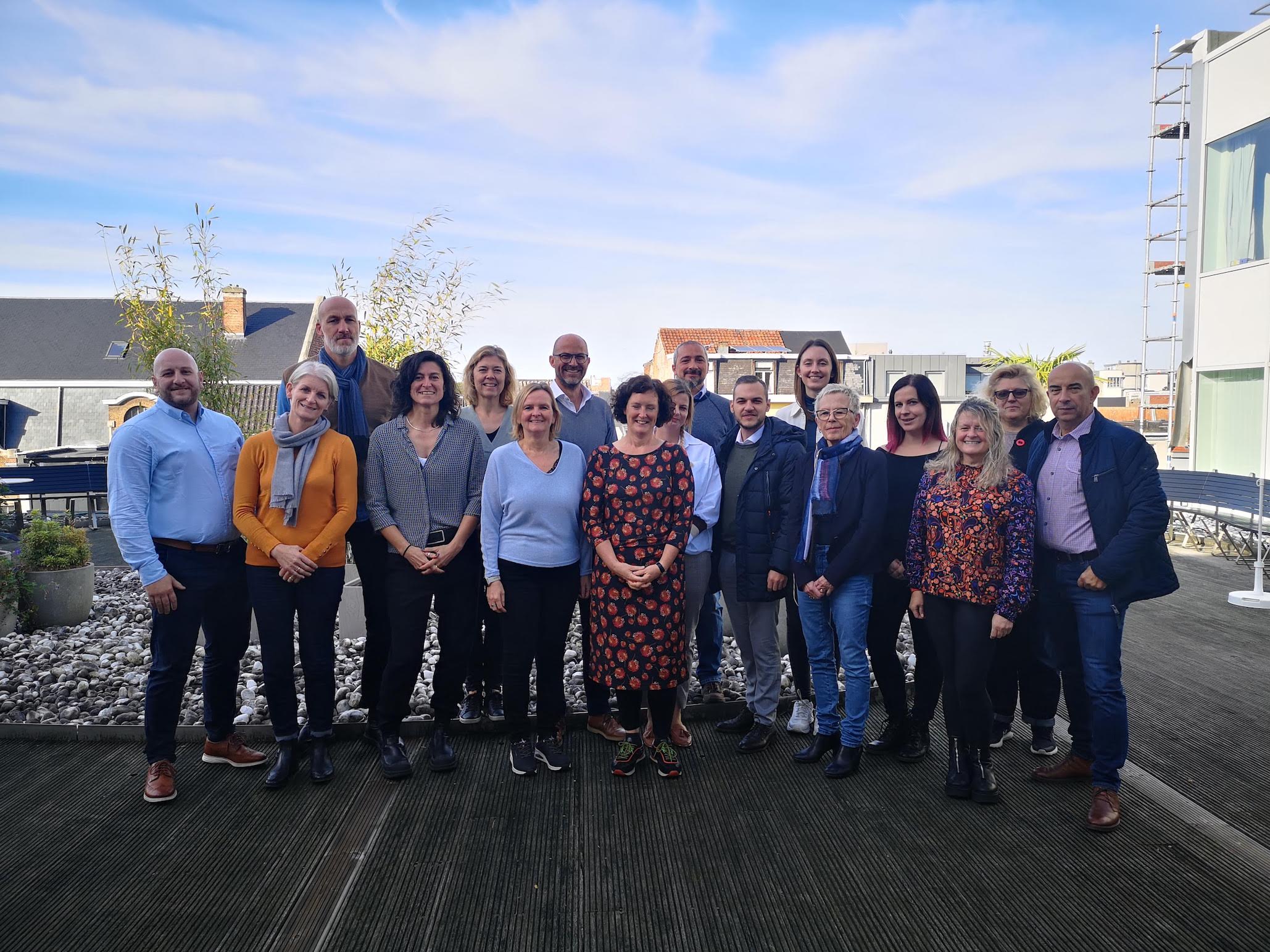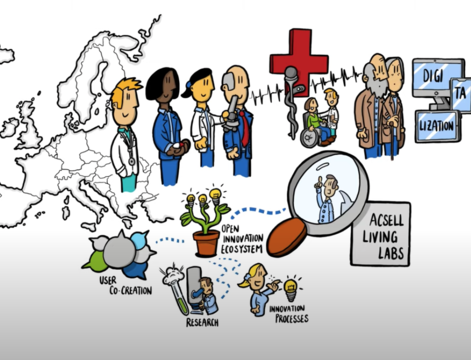At the final high-level event of the ACSELL project on 16 May 2023 in Tübingen, partners and participants engaged in a thoughtful and inspiring discussion about the project's key learnings. The living lab approach emerged as a powerful means to drive demand-driven, user-centred and impact oriented innovation in healthcare. Several essential points were highlighted during the discussions:
The Value of Collaborative Learning: The ACSELL project fostered valuable knowledge sharing among partners from participating European regions. Through the exchange of good practices, experiences, and methodologies, participants gained insights that were integrated into action plans and policies.
Involvement of End-Users: Engaging end-users in the innovation process was emphasized, especially for developing solutions that meet real-world needs.
Formalizing Ecosystems and Living Labs: Formalizing ecosystems and establishing living labs present challenges in resource allocation, stakeholder engagement, infrastructure, collaboration, cultural changes and impact measurement. Overcoming these hurdles requires careful planning and coordination. Building an effective ecosystem relies on the value of personal relations in accessing resources and collaborations, ensuring continuity with clear roles even when individuals leave.
Accelerating Innovation: Participants in the project acknowledged the challenges of accelerating innovation in the health and care sector, particularly in traditional welfare systems. They explored ways to expedite the transition from research and development to commercialization to address pressing sector needs, inter alia via innovation procurement.
Specialization in Innovation: The importance of specialization in innovation for regions was underscored. Finding a niche area for innovation and excelling in it was recognized as a key strategy for success.
Demonstrating Impact: Demonstrating the impact of living labs to the diversity of stakeholders preferably involved in ecosystems (i.e., quadruple helix of stakeholder including policy, industry, research and (civil) society) was seen as essential. However, measuring impact remains a complex challenge that requires further exploration.
Embracing Change: For newcomers to the living lab approach, embracing change and understanding that living labs are more about a systematic, user-centred and collaborative methodology rather than just physical space (like a laboratory) were key takeaways.
Focus on Small Steps and Patience: The participants recognized the importance of patience and taking small, meaningful steps in achieving policy impact through living labs.
In essence, the ACSELL project served as an important catalyst for promoting innovation in the health and care sector, specifically in the participating regions but also across Europe. By leveraging the living lab approach and embracing these crucial lessons, the project has contributed to driving positive change and advancing healthcare innovation.











